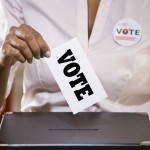 As COVID-19 has spread throughout the world, whereas there was perhaps a degree of sympathy towards politicians placed into an incredible situation at the start of the pandemic, any grace appears to have disappeared as the pandemic has proceeded, with criticism in ample supply.
As COVID-19 has spread throughout the world, whereas there was perhaps a degree of sympathy towards politicians placed into an incredible situation at the start of the pandemic, any grace appears to have disappeared as the pandemic has proceeded, with criticism in ample supply.
It’s a situation that seems likely to result in politicians being punished at the ballot box for their performance during the pandemic, but survey data from the US, UK, and India, suggests this might not actually be the case.
The results revealed that while the electorate does find health incredibly important, they were unlikely to either punish or reward politicians for their management of the pandemic, even if they do in fact hold them responsible for mismanaging the crisis.
Voter intention
The researchers ran a couple of surveys in the US, UK, and India during April and then June, with around 3,000 participants in total. The surveys quizzed participants on the economic and health impact of the pandemic. They were also asked various questions that aimed to discover their attitudes towards both the government and their leader, with a particular emphasis on their voting intentions should an election be held on that day. They were also asked how much they felt their government was responsible for the spread of COVID-19 in their country.
The researchers hypothesized that those exposed to both the economic and health impacts of COVID would be far more likely to blame the incumbent government for the hardships caused by the pandemic, and therefore favor their opponents.
This isn’t really what transpired, however, as while practically all respondents said that health was not only a key policy area but also an area the government had significant responsibility for, this did not translate into changing voting habits. Indeed, even when respondents blamed their government for the spread of the pandemic (which over half did), this didn’t render them any more likely to favor or disfavor the incumbent government.
Does this mean that public health issues have a minimal impact on voting intention? The data certainly seems to suggest that the management of the pandemic will have few implications for politicians around the world.
“The urgency with which the COVID-19 pandemic has ripped through social, economic and political landscapes may challenge these complacencies—but only if [people en masse] make connections between the state of public health and what public officials can do,” the researchers conclude. “If public health is politically inconsequential, this also raises questions about the impact of political institutions on health outcomes.”